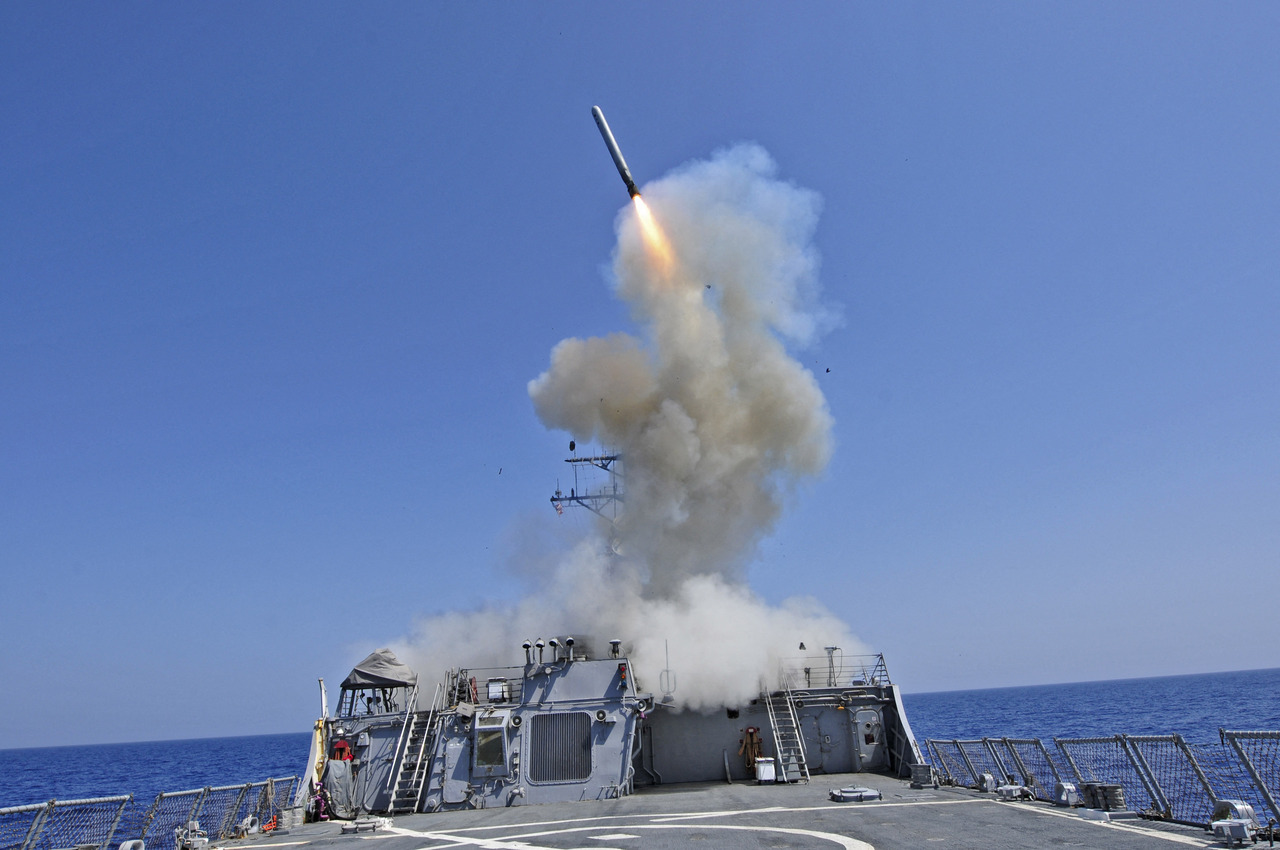Australia to acquire US Tomahawk cruise missiles as part of trilateral defence pact
Sign up now: Get insights on Asia's fast-moving developments

A Tomahawk cruise missile being launched from a US destroyer in the Mediterranean Sea on March 29, 2011.
PHOTO: AFP/US NAVY
WASHINGTON (AFP) - Australia on Thursday (Sept 16) announced that it would acquire long-range US Tomahawk cruise missiles, shortly after forging a new alliance with the US and Britain to strengthen military capabilities in the face of growing rivalry with China.
"We will be enhancing our long-range strike capability, including Tomahawk cruise missiles to be fielded on the Royal Australian Navy Hobart-class destroyers and joint air-to-surface stand-off missiles extended range for our Royal Australian Air Force capabilities," Australian Prime Minister Scott Morrison told reporters in Canberra.
Australia is also set to acquire a new nuclear submarine fleet as part of the trilateral pact with the United States and Britain.
The planned acquisitions that came as part of a pact announced in a video meeting by Mr Morrison, his British counterpart Boris Johnson and US President Joe Biden are bound to raise hackles in Beijing.
The move was also met with swift pushback from France, which had been negotiating a multibillion-dollar sale of conventional submarines to Australia.
Mr Biden said the work to enable Australia to build nuclear-powered submarines would ensure that they had "the most modern capabilities we need to manoeuvre and defend against rapidly evolving threats".
The submarines, the leaders stressed, would not be nuclear-armed, and only powered with nuclear reactors.
The three leaders did not mention China in unveiling the partnership, dubbed Aukus using its acronym, but their intent was clear.
"Our world is becoming more complex, especially here in our region, the Indo-Pacific. This affects us all. The future of the Indo-Pacific will impact all our futures," Mr Morrison said.
Mr Johnson said they would work "hand in glove to preserve stability and security in the Indo-Pacific".
On a visit last week to South-east Asia, Vice-President Kamala Harris accused Beijing of "actions that... threaten the rules-based international order", particularly its aggressive claims in the South China Sea, where frequent territorial disputes have erupted between China and its neighbours in recent years.
Technical and naval representatives from the three countries will spend the next 18 months deciding how to carry out Australia's upgrade, which Mr Johnson said would be "one of the most complex and technically demanding projects in the world, lasting for decades".
In addition to the submarine fleet, a senior Biden administration official said Aukus would combine forces on "cyber, AI - particularly applied AI - quantum technologies and some undersea capabilities as well".
The Biden administration official underlined repeatedly how "unique" the decision is, with Britain being the only other country the US has ever helped to build a nuclear fleet.
"This technology is extremely sensitive," the official said. "We view this as a one-off."
With China building up its own navy and repeatedly testing decades of US military dominance across Asia, the creation of Aukus, with its focus on submarines, is "meant to send a message of reassurance and a determination to maintain a strong deterrent stance", the US official said.
Even if not carrying nuclear weapons, the new submarines will allow Australia to "play at a much higher level", the official said.
"Nuclear-powered submarines really maintain superior characteristics of stealth, speed, manoeuvrability, survivability and really substantial endurance," the official said.
"You will see much deeper interoperability along our navies and our nuclear infrastructure," the official said. "This is a fundamental decision; fundamental. It binds Australia... and the United States and Great Britain for generations."
The Aukus announcement comes as Australia has been boosting defence spending in response to China's more assertive posture.
Mr Morrison will join Mr Biden again on Sept 24, this time in person, at a first White House gathering of the Quad diplomatic group, which comprises Australia, India, Japan and the US.


